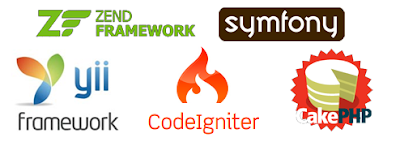PHP is actually not a young language since as of the year 2013 it’s already eighteen years old. Over the years, there have been numerous startup languages that tried to unseat PHP as the ‘lingua franca’ of web apps. However, the PHP development framework still commands over 80 percent of the web market in the world. One reason for the popularity of the framework is the ease with which new developers could begin, but equally important is the fact that it has been evolving for all those years. It has matured considerably since the last time people bashed it and acquiring more and more contemporary features from other languages.
Recent PHP versions have expanded the capabilities in order to keep up with the evolving technical requirements and markets. Web development with PHP means developing dynamic websites and web pages with the use of the capable and versatile server-side scripting language. The framework provides a plethora of benefits. It is not only open source but is also feature-rich. Furthermore, it has all the functionality that a paid or proprietary scripting language offers.
Why choose PHP? Because it is open source, it is free of cost and developed and updated by a community of developers all over the world. Thus, all the components could be used and distributed freely. It can be used to design any kind of web and could handle sites with plenty of traffic. Twitter, Wikipedia, Facebook and other widely visited sites use it as their framework. Since it is server-side scripting, it could do anything that other CGI programs could.
As a framework, PHP has an easily understandable and readable syntax. The code is embedded in the HTML source code and based on C/C++, so it is very familiar and programmers and developers are very comfortable in coding using it. It could be run on all major operating systems that include UNIX, Linux, Mac OS and Windows. PHP supports all major web servers, such as Microsoft IIS, Apache, personal webserver, Netscape and more. It also supports all major databases, like dBase, MySQL, InterBase, IBM DB2, ODBC, FrontBase, SQLite and more.
The development framework utilizes its own memory space and so decreases loading time and workload from the server. The processing speed is rapid and web apps such as CRM, eCommerce and Forums also are developed faster by it. PHP has multiple security layers that prevent malicious attacks and threats, therefore it is secure. The development community is vast with developers who regularly update documentation, tutorials, online help and FAQs.
The framework has been used for two decades now since it first started in 1995. It is trusted by hundreds of thousands of developers and websites and the list is growing on a daily basis. PHP has also proven its versatility and capability through the development and the maintenance of some of the most highly visited and popular sites. For those who are looking for dynamic, fully-functional and robust website as well as a much better web experience, PHP is the language of choice.
Recent PHP versions have expanded the capabilities in order to keep up with the evolving technical requirements and markets. Web development with PHP means developing dynamic websites and web pages with the use of the capable and versatile server-side scripting language. The framework provides a plethora of benefits. It is not only open source but is also feature-rich. Furthermore, it has all the functionality that a paid or proprietary scripting language offers.
Why choose PHP? Because it is open source, it is free of cost and developed and updated by a community of developers all over the world. Thus, all the components could be used and distributed freely. It can be used to design any kind of web and could handle sites with plenty of traffic. Twitter, Wikipedia, Facebook and other widely visited sites use it as their framework. Since it is server-side scripting, it could do anything that other CGI programs could.
As a framework, PHP has an easily understandable and readable syntax. The code is embedded in the HTML source code and based on C/C++, so it is very familiar and programmers and developers are very comfortable in coding using it. It could be run on all major operating systems that include UNIX, Linux, Mac OS and Windows. PHP supports all major web servers, such as Microsoft IIS, Apache, personal webserver, Netscape and more. It also supports all major databases, like dBase, MySQL, InterBase, IBM DB2, ODBC, FrontBase, SQLite and more.
The development framework utilizes its own memory space and so decreases loading time and workload from the server. The processing speed is rapid and web apps such as CRM, eCommerce and Forums also are developed faster by it. PHP has multiple security layers that prevent malicious attacks and threats, therefore it is secure. The development community is vast with developers who regularly update documentation, tutorials, online help and FAQs.
The framework has been used for two decades now since it first started in 1995. It is trusted by hundreds of thousands of developers and websites and the list is growing on a daily basis. PHP has also proven its versatility and capability through the development and the maintenance of some of the most highly visited and popular sites. For those who are looking for dynamic, fully-functional and robust website as well as a much better web experience, PHP is the language of choice.
